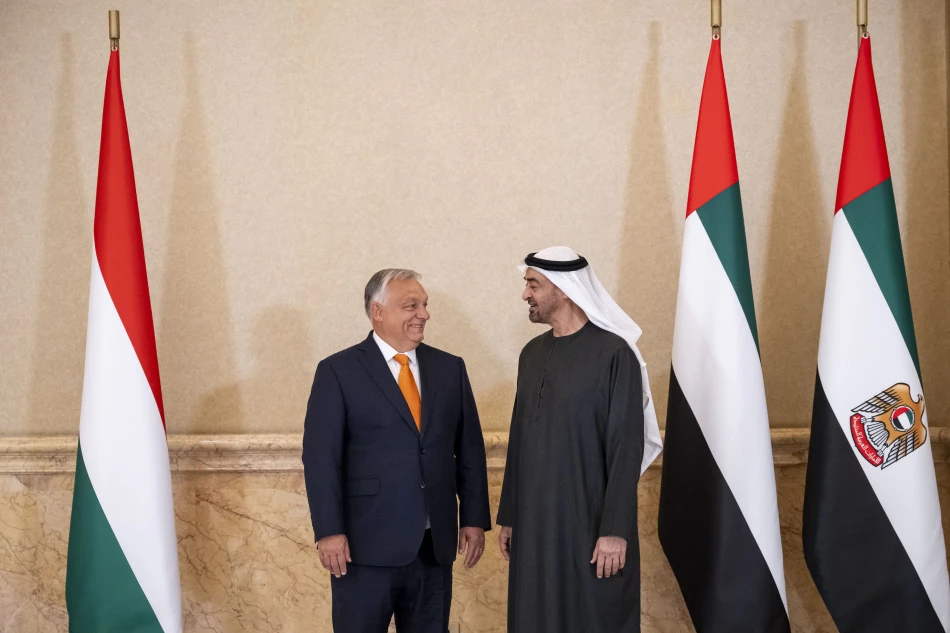
UAE President, Hungarian PM Discuss Strengthening Bilateral Ties
UAE and Hungary Deepen Strategic Partnership as Europe Seeks Middle East Energy Security
UAE President Sheikh Mohamed bin Zayed Al Nahyan and Hungarian Prime Minister Viktor Orbán have reinforced their countries' strategic partnership during a high-level meeting in Abu Dhabi, focusing on energy cooperation and technology transfer as Europe continues to diversify its energy sources away from Russian dependence. The discussions come as both nations celebrate 35 years of diplomatic relations and Hungary positions itself as a key European gateway for Middle Eastern investment.
Energy Partnership Takes Center Stage
The bilateral talks emphasized renewable energy cooperation and technological collaboration, reflecting Hungary's urgent need to secure alternative energy supplies following the EU's gradual phase-out of Russian energy imports. The UAE, with its massive sovereign wealth funds and advanced renewable energy projects like the world's largest single-site solar park, represents an ideal partner for Hungary's energy transition goals.
This partnership aligns with the UAE's broader strategy of positioning itself as a global renewable energy hub while diversifying its international partnerships beyond traditional Western allies. For Hungary, deeper ties with the UAE offer both energy security and access to Gulf capital markets.
Economic Implications and Investment Opportunities
The strengthened relationship signals significant opportunities for cross-border investment flows. Hungarian companies could benefit from UAE's position as a gateway to African and Asian markets, while Emirati investors gain access to European Union markets through Hungary's EU membership.
The timing is particularly strategic as European nations seek to reduce economic dependence on volatile geopolitical relationships. Hungary's pragmatic foreign policy approach, often criticized within EU circles, may prove advantageous in securing diverse energy and investment partnerships.
Regional Context and Global Implications
This meeting reflects a broader trend of Middle Eastern nations expanding their European partnerships beyond traditional allies like France and the UK. Similar to how the UAE has strengthened ties with countries like Greece and Italy, the Hungary partnership represents part of a calculated strategy to diversify geopolitical relationships.
The discussions also covered regional and international issues, suggesting both nations see value in coordinating positions on global challenges. This cooperation could prove valuable as both countries navigate complex relationships with major powers including the US, China, and Russia.
Looking Ahead: A Model for Pragmatic Diplomacy
The UAE-Hungary partnership demonstrates how middle powers can create mutually beneficial relationships that transcend traditional alliance structures. As global supply chains continue to reshape and energy security remains paramount, such pragmatic partnerships are likely to become increasingly common.
For investors and multinational corporations, this deepening relationship opens new corridors for trade and investment between the Gulf and Central Europe, potentially creating alternative routes that bypass more politically sensitive partnerships.
Most Viewed News

 Sara Khaled
Sara Khaled






